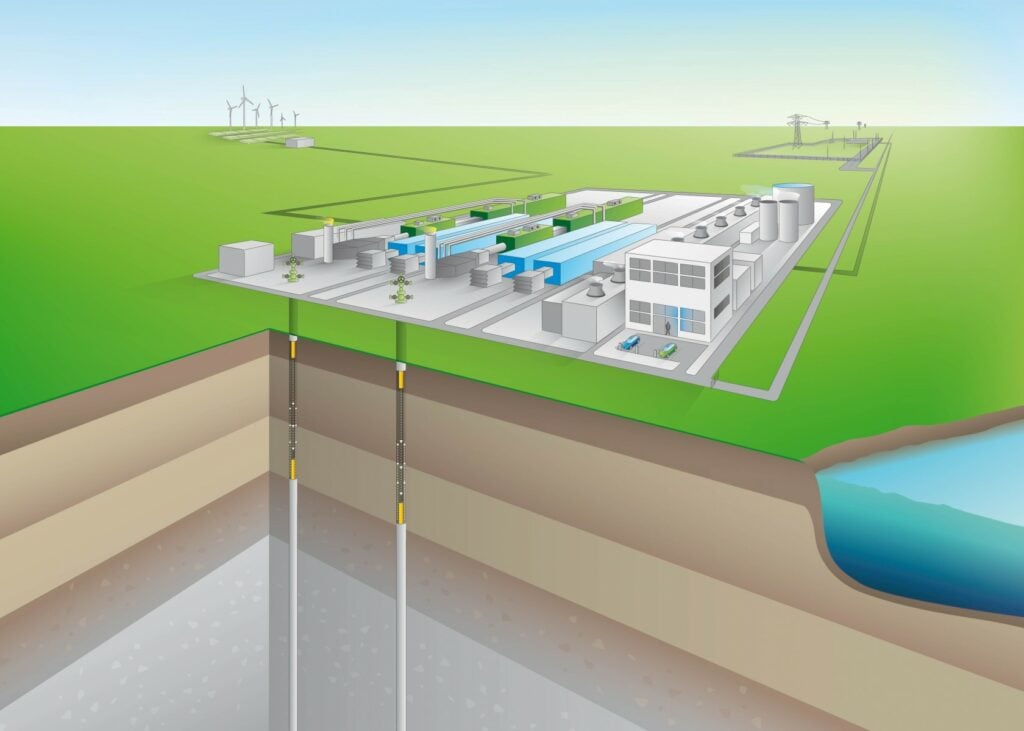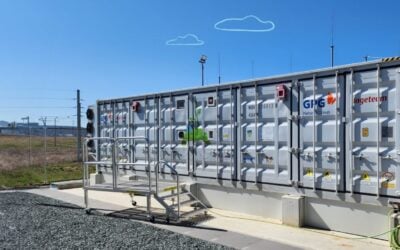
Utility Eneco and Corre Energy have signed an agreement for the latter to deploy a 320MW, 84-hour duration compressed air energy storage system (CAES) in Groningen, the Netherlands.
Dublin-based Corre Energy plans to build the facility in a salt cavern in the municipality of Zuidwending. Exploratory drilling will start in 2023 to assess if the site is suitable for compressed air storage, and the installation of the entire system is expected to be completed by 2026.
Enjoy 12 months of exclusive analysis
- Regular insight and analysis of the industry’s biggest developments
- In-depth interviews with the industry’s leading figures
- Annual digital subscription to the PV Tech Power journal
- Discounts on Solar Media’s portfolio of events, in-person and virtual
The planned system will use up to 220MW of power to convert excess electricity into compressed air and store it in the cavern. When the energy is needed, the compressed air will be expanded through a turbine which will generate electricity with a maximum power of 320MW.
The system can discharge at this power for three and a half days, of 84 hours, which equates to a potential 26,880MWh or 26.88GWh energy storage capacity.
However, Corre’s corporate affairs consultant Kieran McKinney told Energy-Storage.news that, although the calculation is a useful proxy, because the system is fuel-based “….the implied energy storage capacity cannot simply be directly compared to battery capacity”.
“With this storage duration, the facility will be able to arbitrage over a rolling two-week period, as there will be both daily and weekly demand cycles, combined with 2-5 days weather cycles,” he said.
Energy-Storage.news asked why Eneco would opt for CAES instead of advanced compressed air energy storage (A-CAES), which has a round-trip efficiency higher than the former at about 65% versus around 40%.
In response, McKinney said that the conventional diabatic CAES (D-BAES), which in this case is hydrogen-ready, provides a longer duration option than an adiabatic A-CAES system can, and that fuel-efficiency is not the only metric to consider.
“The key here is in understanding the requirements within this geographic environment. The North-West European energy system will face an increasing challenge because the renewables build is likely to be dominated by offshore wind – the nature of the unpredictability here means that flexible storage durations in excess of 3 days will be essential,” he said.
“Fuel-efficiency is of course always important but, in this environment we need also to extend the concept of efficiency to consider economic efficiency. In this market, where duration and flexibility are so important, the full-cycle economic efficiency is strong, because of the almost perfect negative correlation to offshore wind.”
He added that another benefit to the facility is that it will be hydrogen-enabled, providing “a clear path for the transition to green hydrogen, as this market develops”. However, a press release was not clear on when the system would utilise hydrogen, giving separate carbon reduction benefits of its deployment with hydrogen (450,000 tonnes of CO2 a year) and, presumably, without (250,000 tonnes).
Corre Energy is a member of the Long Duration Energy Storage (LDES) Council, founded last year to promote the deployment of LDES technologies.
Click on following links to read more Energy-Storage.news coverage about developments using CAES (here) and A-CAES (here) technology.
Energy-Storage.news’ publisher Solar Media will host the eighth annual Energy Storage Summit EU in London, 22-23 February 2023. This year it is moving to a larger venue, bringing together Europe’s leading investors, policymakers, developers, utilities, energy buyers and service providers all in one place. Visit the official site for more info.






